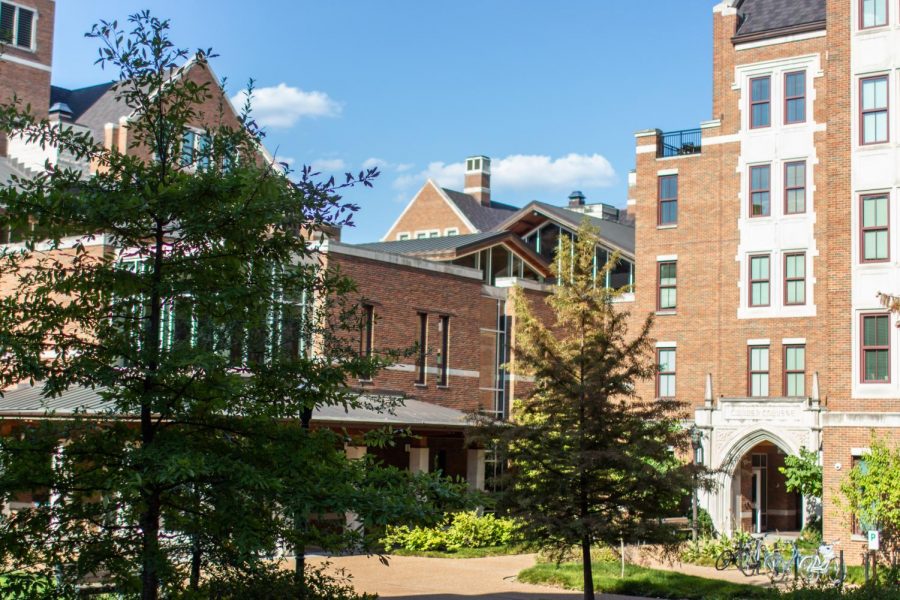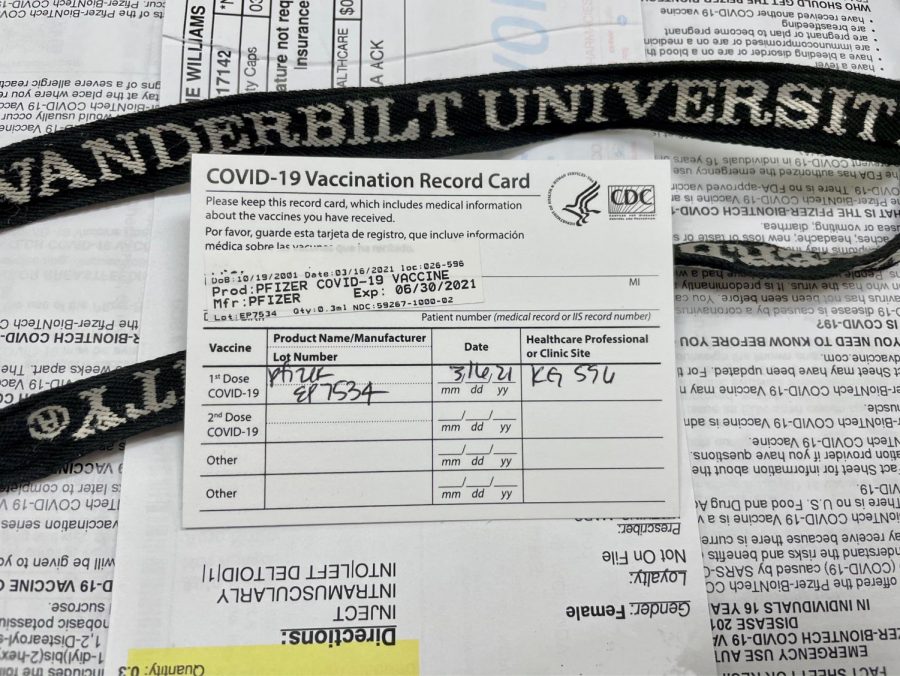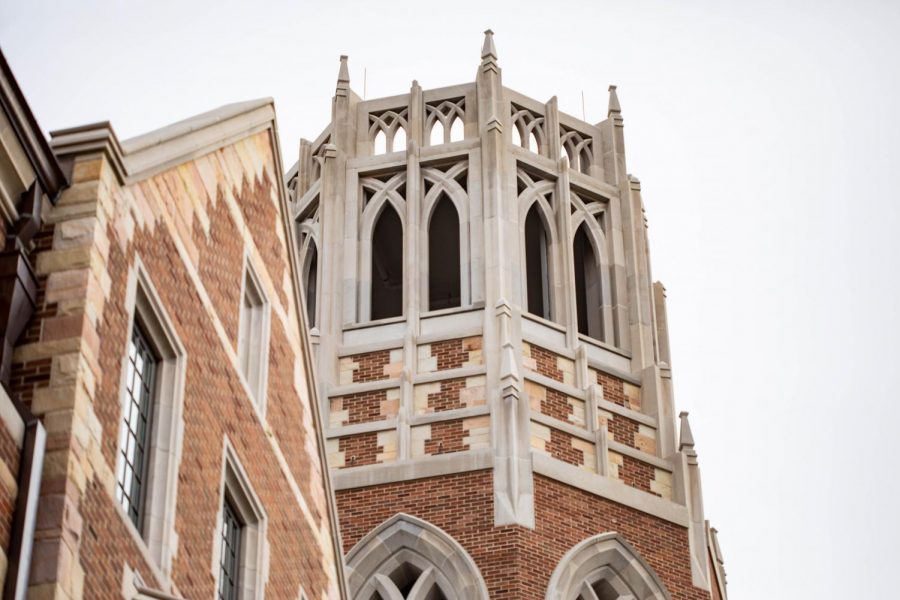The sunny green Quad, walks to class from Commons and Main Campus and the tight-knit Commodore community based in Vanderbilt dorms are quintessential aspects of the Vandy experience. Though all students at Vanderbilt should experience such luxuries, the incoming transfer class was unexpectedly stripped of these opportunities and essentially forced to become commuter students.
One short sentence in my acceptance letter revealed it all: “housing constraints will require that new transfer students live off-campus for the 2020/2021 academic year.”
The four years spent in college are a rite of passage. They build a student’s character by allowing them to revel in semester-long intervals of independence and intense education to finally reward them with a degree. Most transfer students have already spent one or two years in a university setting, choosing to transfer elsewhere and explore new communities or educational opportunities.
Transferring to Vanderbilt from San Francisco State University provided me with a second chance to do both. My disappointment with SFSU’s administration drove me to fight with peers to improve the four-year graduation rates and alleviate the financial burden many would see after grants expired after our fourth year. Unfortunately, I was pushed to seek alternate methods to ensure that I would receive a cost-effective education and overall brighter collegiate experience, resulting in my decision to transfer to Vanderbilt.
Though I am grateful and excited for the opportunity to be a part of the Commodore community, I cannot help but question Vanderbilt’s decision regarding the housing situation for the incoming transfer class.
With one sentence, our ability to create a community at Vanderbilt and experience the luxuries we worked months to attain were severely hindered.
The “Congratulations Danny” in bold gold was supposed to bring a sigh of relief; though many, including myself, were soon wondering whether we should even attend Vanderbilt due to the housing limitations. Personally, I know of a handful of transfer applicants who were enthusiastic about going to Vanderbilt but declined their offers because of the off-campus housing requirements. Moreover, applicants on the infamous CollegeConfidential, a forum known for its user base of angsty college applicants, withdrew their applications after the first wave of transfer decisions were released as a result of the unexpected restrictions, fueling further housing-related paranoia.
As we scrambled to find housing before Vandy announced their plans for the fall, some transfer students took the initiative to create a GroupMe group chat and a Google form dedicated to building a community and finding compatible roommates. Outside of forming a Facebook group, no communication was given from Vanderbilt to the incoming transfer class regarding resources to find housing. This predicament was exacerbated by Vanderbilt’s refusal to release updates about the upcoming Fall 2020 semester until Tuesday, June 16, imposing the unnecessary risk of wasting money in an attempt to secure expensive, high-demand housing early.
Unfinalized financial aid packages like mine estimate the cost of housing at $11,540, though it is still unclear whether Vanderbilt has accounted for the cost of living in Nashville. Incoming transfers have doubts that the allocated funds in their financial aid packages will suffice, as variable costs and the recent property tax hikes imposed by the city of Nashville threaten to increase rent to staggering levels. As a student who solely depends on the generous financial aid packages offered by Vandy to fund my education, the variability in rent prices poses a threat to the quality of education I hope to receive. The high demand for apartments surrounding campus and the lack of resources provided by the school impose an unrealistic expectation among transfers to find and finance off-campus living in haste. Moreover, they fail to consider the variability of pricing in off-campus housing that may result in insufficient funding for students. Hence, the policies enacted by Vanderbilt only reinforce its history of appeasing the wealthy, breeding an exclusive experience only accessible to those that can afford it.
The Return to Campus town hall hosted by Interim Chancellor and Provost Susan R. Wente and Vice Chancellor for Administration Eric Kopstain on June 17 only solidified this notion of exclusion of transfers, as neither transfer students nor the issues imposed onto us were mentioned. It was clear that the quintessential Vanderbilt experience was only to be upheld for freshman admits and current upperclassmen, as meticulous planning was taken to improve their quality of life. Though I hope Vanderbilt will address the concerns of transfer students in the following town hall on June 22, I am doubtful that the administration will do so.
The lack of transparency and communication with transfer students reveals how Vanderbilt University views us—as second-class when compared to current students and incoming freshmen. Unexpectedly displacing transfer students without providing further resources goes against the philosophy of Vanderbilt—to provide a safe learning environment for all to flourish. If Vanderbilt and its peer institutions hope to place the disadvantaged on level playing fields with advantaged students, they must carefully guide us throughout our collegiate years to ensure success rather than abandon us.
Simply establishing small, online support networks for transfer students dedicated to finding housing and hosting events—virtual or in-person—can drastically alter the 2020-2021 experience for us. In doing so, Vanderbilt can extend the on-campus living experience to remote locations despite restrictions placed upon us by the pandemic, providing a sense of community that permeates the life of every Commodore. Furthermore, it is imperative that Vanderbilt commits to making on-campus housing an option for 2020’s incoming transfer class to ensure we have an equal opportunity to participate in the on-campus, living-based Vandy experience. Implementing such measures is the first step in forcing Vanderbilt to acknowledge transfer students and our struggles, inevitably pioneering discussions about ways to improve our livelihoods in events like the recent town hall.
As students prepare to return to campus in the fall, I am hopeful that my next two years at Vanderbilt University will be my best thus far; though, I cannot help but think that their neglect of the transfer student experience is an omen for what has yet to come.









Transfer Mom • Jun 22, 2020 at 11:35 pm CDT
As a parent of an incoming transfer student, I totally agree with this opinion piece. Vanderbilt has offered absolutely no information or help regarding the transfer process. They have left us on our own to figure out housing without a single piece of information – a list of nearby buildings, locations that fall within VU police patrol, anything at all. Transfers are starting over with no connection to their new university and deserve the same welcome, the same connections and the same thoughtfulness Vanderbilt is putting into their new freshmen class. Transfers were not even mentioned in the Zoom seminar we attended last Wednesday. Talk about feeling invisible and disregarded. It is not “entitled” to want the same services and care the other students at the university are receiving. And it’s not whining to ask for it.
David Hunter • Jun 22, 2020 at 11:11 pm CDT
This sounds very entitled. They could either have every student ZOOM at home or make housing changes a and classroom changes. I can guarantee that it is a lot more work on VU than you. Sorry COVID 19 got in your way but stop crying and adjust please.
Allie • Jun 22, 2020 at 8:02 pm CDT
Colleges do not accommodate enough for transfers. To say “we should just be grateful” is disrespectful. Many transfers work hard and don’t sleep to go their credits done and a good GPA. We have more experience and better work ethic than most first-years; just being honest here. Considering how little transfers are accepted it shouldn’t be hard to be more accommodating.
Bruno Wengrowski • Jun 22, 2020 at 4:41 pm CDT
My son graduated Vandy in 1996. He completed his de
gree in Economices. He was a red-shirt in football . After All-Europe football honors. He concentrated on his degree. Today he is a highly ranked executive in logistics. The experience at Vznderbilt must be a complete 4 year experience.
Aia Welsh • Jun 22, 2020 at 1:30 pm CDT
I agree with what Danny said. This seems quite entitled and lacks an awareness of the bigger picture. All Vanderbilt students are sacrificing, and transfers living off campus is just one small part of a team effort. Freshman can hardly be stoked either that some of them have to live in towers and all their team building and orientation events are virtual now. Could be a lot worse than being told you can’t live in Branscomb, seriously.
Danny • Jun 22, 2020 at 11:39 am CDT
You should be grateful that you were accepted to Vanderbilt with good financial aid. Many rising sophomore students, non-transfers, as well as many upperclassmen will be living off campus next year as well. Vanderbilt granted a record number of off-campus requests in order to be able to provide housing that is essential to having an in person fall semester. Without off campus housing for both returning students AND transfer students, we would be on Zoom once again. Cut your losses and be appreciative that the school is doing what it must and that we all are making sacrifices in order to return to campus.
Karin Johnson • Jun 22, 2020 at 8:39 am CDT
I’m sickened by the actions of Vanderbilt regarding transfer students!!! My grandson is a standout basketball player at 13 years old. I discourage him from applying at this old, rundown school!!!